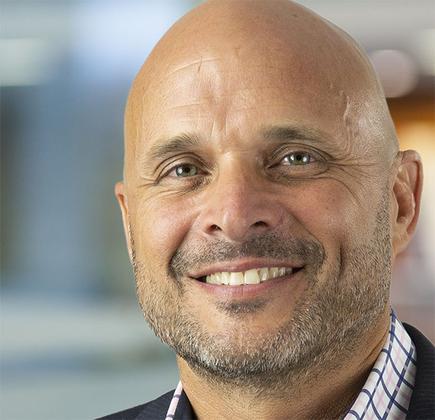
To win today, firms need to differentiate and disrupt
They say the best thing about being an economist is making your next prediction and not telling people why your last prediction may have been wrong. Well, we aren’t economists, so we are going to revisit Forrester’s 2019 CIO predictions to see if they have come to fruition. Let’s review.
Things we feel really good about
After all these years of digital transformation, we are wondering if companies realise the benefits that were promised. Consider the following: First, productivity is stubbornly low, meaning that our healthy investments in tech may not be moving the needle. Second, customer experience scores are stagnating, meaning we are not improving the experiences we deliver. Third, there is a creeping feeling of “digital sameness” as our mobile (check out how similar airline apps are), web (look at the big consultancies’ sites), and physical (how about beauty stores?) experiences are converging. This is what happens when everyone is trying to solve the same problem using comparable methods with the same partners leveraging similar tech stacks and rendering them using common form factors.
To win today, firms need to differentiate and disrupt — and Forrester’s research shows that the most successful companies are using tech-driven innovation (TDI) to do just that. Yes, they flip the equation on its head and rapidly experiment with technology, then use this knowledge to innovate. Does it work? How does a return of 3–4x sound? That is what our data tells us.
Considering the points we made above about digital transformation not delivering what we would hope or like, harken back to some of Forrester’s seminal customer obsession research. We assessed more than 1,000 companies to identify what levers are best aligned with delivering a customer-obsessed enterprise. As much as it pains me to say, technology came in last! Metrics, processes, and structure came in just ahead of tech. The two biggest factors: culture and talent. So we spend all that time on the nuts and bolts, yet it is the people that are the key.
We spend all that time on the nuts and bolts of digital transformation, yet it is the people that are key
With this in mind, it stands to reason that culture and talent are big reasons why digital transformation may not be taking us as far as we want to go. For those companies that aren’t seeing the fruits of their collective labors, it stands to reason that a new look at their culture and talent may be just what the doctor ordered. Oftentimes, companies find that leadership is the best way to change culture (and start to change talent) and being able to find someone who has “been there, done that” is hugely valuable. Thus, we believe that the pool of real digital achievers is worth its weight in gold (or whatever is more valuable than gold). These folks will be able to punch their own tickets to new and more exciting challenges.
Things we would like to reposition
Going back to the innovation theme, we talk about companies focusing on delivering real-world solutions. And that remains important. Forrester’s James Staten has shown, however, that a disruptive course of innovation that includes a portfolio approach from moonshots to incremental innovation is the way to go. We recognise that you need to be successful and that those incremental innovations are critical to demonstrating progress, improving experiences and bottom lines, and changing the culture.
But here is the rub: This approach to innovation is not likely to make or keep you a leader in your market. Too many other companies — from traditional companies to startups that you don’t even know about yet — are ready to disrupt, and one day they will get to your market.
We believe that the leaders in 2019 will get to those real-world solutions today and start to build the organisational muscle to deliver disruptive innovation that establishes your market dominance for years to come.
To support innovation and operations in general, speed to market is critical. Customers want things now. The business wants it as soon as possible. IT usually delivers when it can, and that just doesn’t work. So please, keep working on speed.
But recognise the words of Mahatma Gandhi, who said, “There is more to life than increasing its speed.”
The same is true for technology. Firms need to be able to go fast when necessary, but they also need the ability to adapt to meet changing customer, market, or technology conditions.
As such, we believe companies will move deeper into adaptiveness during 2019 to ensure that they can meet the speed of the business and its customers.


Matthew Guarini is vice president, research director and Pascal Matzke is vice president, research director at Forrester. This article was adapted from a Forrester blog.
Join the CIO New Zealand group on LinkedIn. The group is open to CIOs, IT Directors, COOs, CTOs and senior IT managers.
